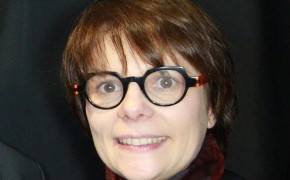Collaborations on two different initiatives that are highly complementary: a RIS3 horizontal measure and the ARD program
Centre-Val de Loire is an industrial region whose players are mainly subcontractors in the industrial value chain (aeronautics, automotive, medical devices, etc.). There is a need to strengthen the industrial fabric by relying on innovation in connection with the integration of multi-materials in industrial products. To promote industrial transition through the implementation of a multi-material approach, we improved collaborations between private companies and academic laboratories thanks threw two different initiatives that are highly complementary
- The RIS3 Horizontal measure is dedicated to Industrial, agricultural and ecological transitions, which ambition is to carry out an economic transformation for innovation, decarbonization, and digitalization, and to acquire the necessary skills to face the future challenges (employment, added value, energy-saving, circular economy, etc.).
- The ARD MATEX (Multi materials in extreme conditions) which ambition is to structure regional research and development of multi-materials elaborated or working in extremes conditions (facing high-stress loads).
Mixing representative communities:
- From the public sector CNRS, Orleans and Tours Universities, INSA-CVL engineering school
- From the private sector with more than 30 companies which part of an entrepreneurs’ club (ARD Matex)
Resources needed
For the RIS3 Horizontal Measure: a co-animation between the CNRS Institute and competitiveness cluster “Polymeris”
For the ARD MATEX:
A consortium comprised of :
o 9 laboratories
o 2 competitiveness clusters,
o 2 clusters,
o 2 technology resource centers,
o The Studium
o 1 technopole
Evidence of success
The first results of this approach succeed to initiate:
o a dynamic partnership to structure a research network in connection with international partners
o a common entrepreneurs’ club to strengthen academic/private partner’s exchanges
22 academic/private collaborative projects technologies have been identified
Difficulties encountered
The key success factors are:
- The understanding of the needs of each part
- To produce results for the different parts in the short term to allow the design of the more important projects with less risk and more innovations
Potential for learning or transfer
The implementation of the Horizontal Measure is based on 2 stages:
1. To be capable of regrouping all the actors with their skills on the same map
It implies mapping skills, academic laboratories, companies, training, and equipment to help solve industrial problems through a multi-material approach
2. : To make easier the relationships between partners coming from the same or different fields
The implementation of the ARD MATEX led to design projects which help to consolidate industrial technologies while involving different teams of research under the same objective
The complementarity of these 2 approaches led to
- Facilitate the networking of actors on the subject of multi-materials
- Bring out platforms facilitating public / private collaborative innovation by acquiring state-of-the-art tools (instrumental park)
- Develop training to support companies to find the required skills
- Bring out projects based on the multi-material approach with a social, economic impact
Tags: Collaborative, Innovation, Open innovation, Research and development








